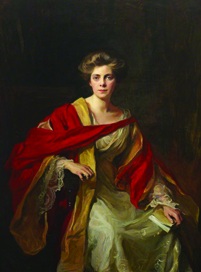This post was contributed by Bryony Merritt from Birkbeck’s Department of External Relations.
On Wednesday 5 March, Professor Tom Welton, Dean of the Faculty of Natural Sciences and formerly Head of the Department of Chemistry at Imperial College London, shared his story of achieving an Athena Swan Gold award for his department, and the journey that his faculty continues to move along. Athena Swan awards, awarded by the Equality Challenge Unit, recognise commitment from universities to combatting the underrepresentation of women in science, technology, engineering, mathematics and medicine.
Identify a starting point
When Professor Welton took up post as Head of the Chemistry Department at Imperial his advisory board asked him what he wanted to achieve. He replied that he wanted “to make his department the best chemistry department in Europe”. In order to understand how he could achieve this, he then asked his staff: “If you had just walked into the best chemistry department in Europe, how would you know?” They told him that it would be the place where the brightest and the best researchers wanted to work; the brightest and the best students wanted to study; and the biggest and the best funding bodies wanted to fund research.
Immediately, Professor Welton knew that the Department was not living up to his vision for it. He says this was clear to him because having one female professor out of 20 within the department does not show the brightest and the best, unless you believe that by nature men are 20 times better at chemistry than women.
Find out where your pipeline is leaking
Universities have, in the past, shirked responsibility for low representation of particular groups within their institutions or particular departments, saying that it is the responsibility of schools to provide a steady pipeline of talent from diverse backgrounds. However, analysis of gender diversity at Imperial showed that at undergraduate, master’s and even PhD level the gender balance held up. At post-doctoral level there was a huge fall in the number of women within the chemistry department. Therefore, said Professor Welton, we had to accept that this was our problem, and something that we were (or weren’t) doing was causing women to leave the department (and possibly the field) at this stage. This provided a focal point for where to begin and after a series of focus groups with female and male PhD students, they discovered that at the start of their doctorates women said that they wanted a career in academic research, but by their final year they said that they didn’t want the life of a post-doc, as well as identifying particular negative behaviours that they’d experience during their PhDs.
Make mistakes and learn from them
Having identified that the life of a post-doc was off-putting to many female PhD students, Professor Welton talked to his post-docs to see how their work life could be improved. Initially, this involved providing more social opportunities involving wine! However, a Malaysian student pointed out that she and other Muslims could not attend events where there was alcohol. Professor Welton recognised that you can’t create an inclusive environment in which you are inclusive to only particular groups – it has to be inclusive for all; and so evening socials with wine became “Friday Doughnuts” – an opportunity for staff to get to know each other as people, rather than ‘just’ scientists. It also has the advantage of taking place within school hours so that those with children were able to attend.
Small acts change a culture
It is through the introduction of many small acts (such as Friday doughnuts, or leaving office doors open) that a culture can be changed, believes Professor Welton. He set out to achieve the best chemistry department in Europe by creating an inclusive environment, not to win an Athena Swan Gold award. However, he stressed that Athena Swan and business objectives are not in opposition to one another.
Using performance metrics
While acknowledging that there are mixed opinions about the role of metrics in diversity work, Professor Welton demonstrated how he has been able to use them to good effect. When asked “What do I need to do to be promoted?” he can point to the metrics of those that are operating at the level that the individual is aiming for (publications, citations etc). By having this information available for staff in the department it also enables Professor Welton to identify people that should be encouraged to apply for promotions, or those that are narrowly missing hitting the necessary numbers, so that their workload can be assessed and ways to help them achieve promotion are identified.
Professor Welton’s final message was “Good management for diversity is good management full stop.”
. Reply . Category: Higher education, Science . Tags: Athena Swan, equality and diversity, gender equality, science



